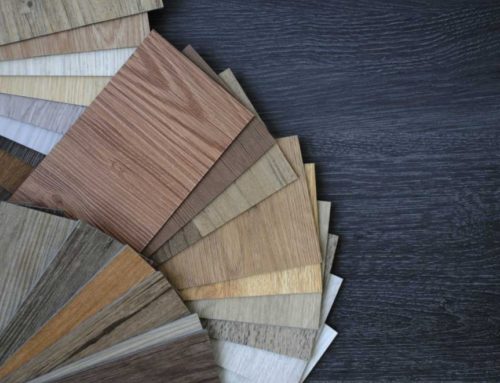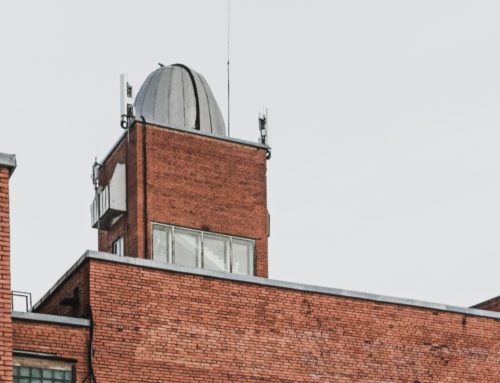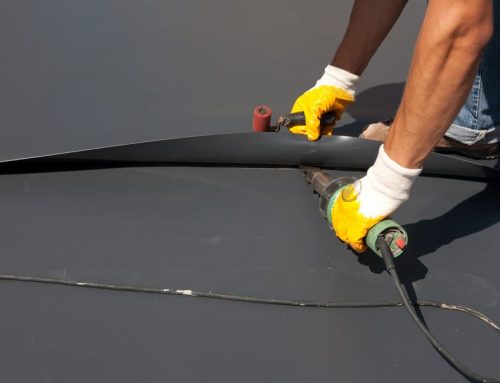Research shows that flat roofs can last up to 30 years when they’re well-maintained. So, if your flat roof is looking a little worse for wear, you need to act now if you want to reap the maximum benefits of this type of roof.
Choosing the optimum roofing material is an important starting point before commencing any flat roof repair, replacement, or construction.
Here’s your guide to the best flat roof materials.
WHY CHOOSE A FLAT ROOF FOR YOUR HOME OR BUSINESS?
Flat roofs have stood the test of time due to their durability and low-cost installation. These types of roofs are easier, quicker, and safer to install than pitched roofs. That means there are fewer risks and less labour involved in flat roof construction.
It’s also easier and safer to inspect and maintain flat roofs since it’s safe to walk on top of them without much risk of falling. If you live on a small lot, you can easily convert your flat roof into an outdoor entertainment area, thereby increasing the living space of your home.
On the downside, flat roofs don’t drain as easily as pitched roofs although your contractor can install additional mechanisms to increase drainage. Due to these benefits, you’ll find flat roofs on a wide range of buildings in the Shropshire area. Some of these include:
- Residential extensions
- Domestic garages
- Shopping centres
- Hospitals
- Schools
The material you choose for your flat roof has a major impact on its effectiveness.
COMMON TYPES OF FLAT ROOF MATERIALS
Due to the popularity and long history of flat roofing, there are plenty of options to choose from when installing this type of roof.
So, you’re bound to find one that’s both budget-friendly as well as suited to your specific needs. These are some of the most popular types of flat roofs:
METAL ROOFS
Metal roofing suits both residential and commercial buildings due it’s diversity. It’s often chosen by homeowners contemplating a flat roof extension such as a lean-to. You can choose flat roofing in a range of colours and materials. Some of these include:
- Aluminium
- Copper
- Corrugated galvanized steel
- Stainless steel
- Stone-coated steel
- Tin
In its natural state, metal rusts easily, but a protective coating helps to limit damage from the elements and prolong the life of your roof. Metal is a costly choice for commercial roofing due to its high cost per square foot.
Another downside is that it’s extremely noisy in the rain. These roofs have excellent fire-resistant ratings and seldom puncture or tear.
BUILT-UP ROOFING SYSTEMS
Built-up roofing is basic tar and gravel roofing. It’s made from alternating layers of fibreglass asphalt sheeting and hot bitumen with a layer of gravel on top.
BURs are fireproof and durable, but they take a long time to install, resulting in higher labour costs.
SINGLE-PLY COMMERCIAL ROOFING SYSTEMS
These types of roofs are flexible, hardy, and quick to install. This makes them one of the most popular options among flat roofs.
Single-ply roofing systems consist of one layer of roofing material on top of a concrete roof deck. These are the three main types of single-ply roofs:
Ethylene Propylene Diene Monomer (EPDM)
EPDM roofing has an excellent reputation for durability and has been around for over 60 years. EPDM’s made from rubber, so it’s flexible and easily shaped to fit unusually-shaped roofs.
Most of these roofs are black which also helps to keep buildings warmer in cold climates. EPDM roofing consists of large sheets rolled onto the roof, limiting the potential for leaks.
EPDM membrane comes without insulation, so you have the freedom to choose the type of insulation that suits you best
Another benefit of EPDM is that it’s totally recyclable and manufacturers use little energy when manufacturing this material, so it has a low-carbon footprint.
Good fire-resistant qualities and supreme durability mean an EPDM roof can last up to 35 years.
Polyvinyl Chloride (PVC)
Polyvinyl Chloride (PVC) roofs are tough, lightweight, and highly reflective. The material’s also resistant to fire, UV light, chemical spills, punctures, tears, and wind.
It’s a good choice for restaurants and any other business that emits oil and fat fumes via their rooftop ventilation systems.
Thermoplastic Polyolefin (TPO)
TPO roofing is a more environmentally-friendly version of PVC. It has all the benefits of PVC roofing plus it’s recyclable.
Since TPO roofing’s a relatively new innovation, it hasn’t had much opportunity to prove itself as far as longevity goes.
Liquid-Applied Roofing
Liquid applied roofing is a marriage of polyester and resin. Contractors spray or roller-apply the liquid onsite so it flows easily into flashing and hard-to-reach areas.
Thanks to this, liquid applied roofing boasts fantastic water resistance. It’s easy to repair by pouring more liquid at the site of any cracks.
You need an experienced, licensed contractor to apply this type of roof due to the high skill levels involved.
Modified Bitumen Roofing Systems
Modified bitumen roofing combine asphalt and a chemical polymer to create a fire-, weather- and heat-resistant finish to your flat roof.
Like BUR, these roofs have several layers and come in sheets that are either self-adhesive or bound together with hot-mopped asphalt.
Once they’ve covered the entire surface of your roof, your contractor melts the seams together with a torch to form a secure bond.
Green Roofs
Green roofs are becoming ever more popular as a way to create natural spaces in built-up areas. They have several environmental benefits like reduced energy-consumption and air filtration.
Green roofs help reduce the Urban Heat Island Effect thanks to their ability to filter the air and reduce buildings’ energy consumption.
FINDING THE RIGHT ROOF FOR YOUR BUILDING
Whether you’re re-roofing your commercial premises or building a flat-roofed house, you need an expert on board to help you make the best decisions. With over 50 years in business, we bring that expertise to your build.
Get in touch today and one of our skilled roofing technicians will help you make the best choice for your building.





